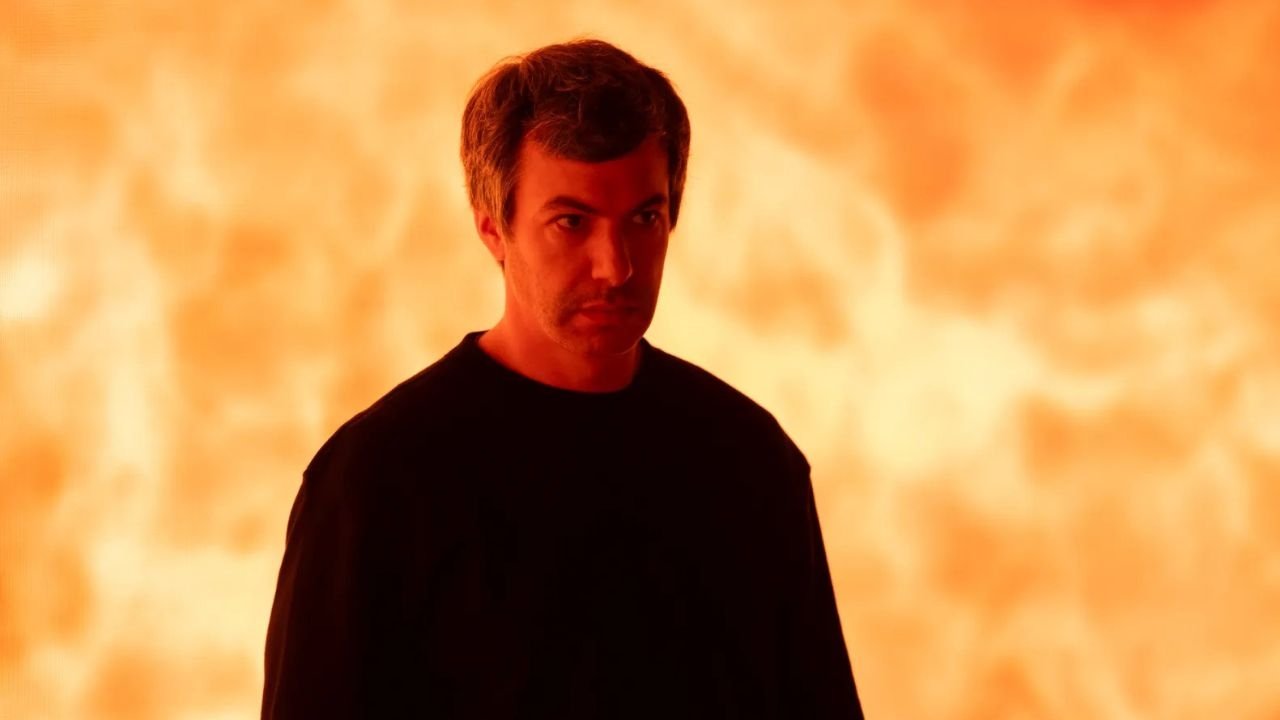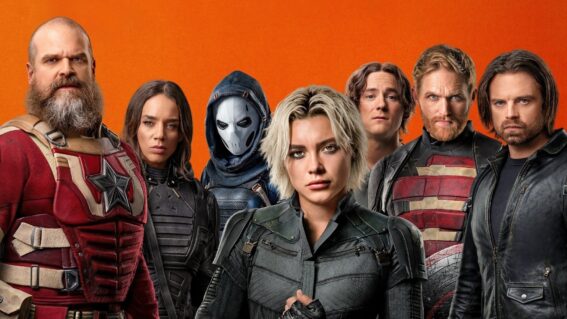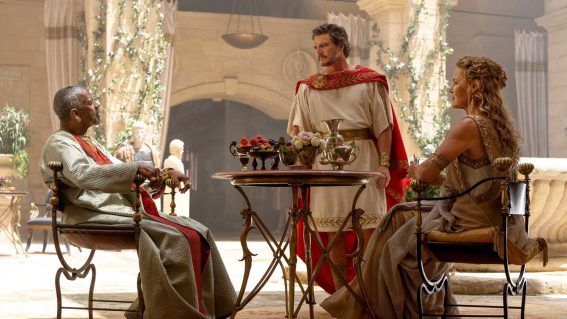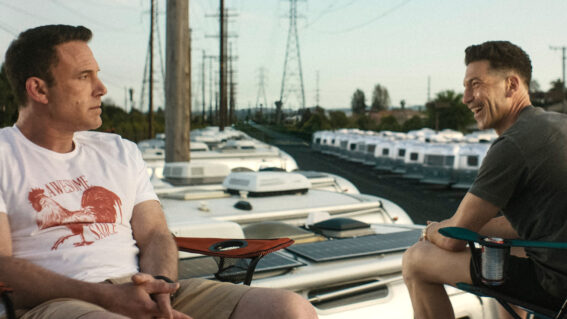The Rehearsal season 2: still brilliantly unhinged, now with diapers

Luke Buckmaster unpacks the brilliantly bizarre second season of The Rehearsal, in which Nathan Fielder—armed with a laptop harness and unsettling sincerity—blurs reality, comedy, and crisis.
When I see Canadian comedian Nathan Fielder wearing his now-signature laptop harness, I think of Bob Dylan with his harmonica holder and Darth Vader with his ventilator. The device is more than a thing around their neck or in front of their face: it represents a transhuman-like fusion of man and machine, identity and purpose. Nobody can say how many more seasons we’ll get of Fielder’s mind-boggling series The Rehearsal, but I hope it’s a lot, and that this image of him follows its journey of iconism onto t-shirts, coasters, cufflinks, bobbleheads, nail stickers, fridge magnets.
The arrival of the show’s maiden season three years ago sparked a zillion online think pieces, including one from moi, as the commentariat tussled with a production that somehow seemed to be about much more—and much less—than it lets on. If one core feature could be singled out, it must be the construction of elaborate sets that Fielder uses to simulate real-world spaces, allowing participants to rehearse various scenarios they’re worried, perplexed, or curious about. The show opened with Fielder helping a man rehearse a confession to a trivia teammate, inside a near-identical replica of the bar in which the real event would take place.
The glorious irony is that, by patternising potential outcomes and attempting to plan—or “plan”—for the future, Fielder’s nestled realities and bizarro worlds only create more chaos. In this Venn diagram, there’s nothing but overlay. Rather than using the premise to provide a repeatable format, with clean breaks between episodes and particular case studies, Fielder built a fascinatingly long, messy and dark arc, ultimately involving him being a fake parent, and a fake partner, raising a fake son, for reasons too peculiar to relay here.
The second season rests on a serious thesis about the aviation industry. Fielder argues that a key reason behind several flight disasters in recent years involves a failure of communication between pilots. He frames himself as a well-meaning person who’s stumbled upon a profound realisation but is caught in a conundrum, declaring that “even though I have the resources to potentially solve this life or death issue, and save real humans from dying, I was given this money to create a comedy series.” This observation is followed by the ingenious image of a man in a clown suit, under the wheel of his clown van, begging for help, while onlookers watch and laugh. Nobody can tell what’s part of the act.

The question of what Fielder’s playing at cannot be easily answered, or even answered at all. Before you know it, the documentarian-prankster is sticking his beak into the romantic life of a young pilot and constructing replicas of an airport. Later on, he’ll recreate a Paramount+ office, imagining it as a war room and the executive as a Nazi-like figure; later still, he’ll appear in a diaper, pretending to be a baby, sucking milk from the breast of a giant stringed puppet. He has his reasons. Fielder is brilliant at building a thesis that seems sort of logical at the time—at the very least, a smoothly drawn series of connections—but then all of a sudden one stops and thinks: how the hell did we get here?
The aviation-related hypothesis is a sly way to frontload some central themes around problems in communication and difficulties people have in expressing themselves. The question of whether Fielder himself is being glib, or something approaching earnest, hangs over everything. “I’ve always felt that sincerity is overrated. It just ends up punishing those who can’t perform it as well as others,” he says at one point: a deceptively clever line, wrapping sincerity up with performance, putting it where it shouldn’t belong.
There are no neat lessons, no ties in the knot. The Rehearsal is more like one of those rope tricks deployed by magicians: it’s one rope, then two, three, four, then one again…the joins aren’t joins, the ends aren’t ends, it’s a series of pieces, it’s one long strand. Like a magician—a trade Fielder dabbled in when he was a teenager, as he reminds us towards the end of the series—he knows he needs a big final act, a wild antic to finish things off. No spoilers here, suffice to say that things scale up, up, and away. The impact of this big stunt is reduced by the prevailing air of unreality. But my main complaint? He doesn’t whip out that laptop harness a little more often.

















